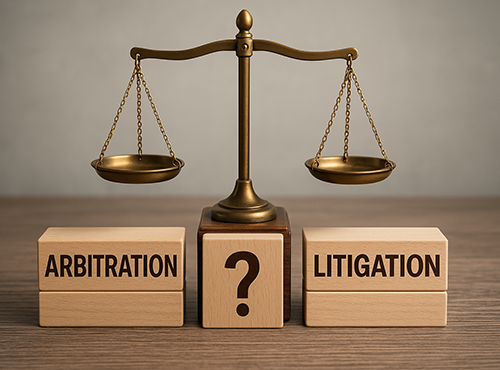Resolving Land Disputes in India – Legal Remedies and Practical Tips
In the diverse landscape of India, land disputes are exceedingly common and occur in various forms, impacting a significant number of individuals and entities. Such disputes often stem from a range of complex issues including ambiguities in property rights, inheritance conflicts, and discrepancies in land documentation. The prominence of these land disputes highlights the critical need for a thorough understanding of the associated legal frameworks as well as practical solutions that can be applied to manage and resolve these conflicts effectively.
One common type of land dispute in India involves boundary disagreements, where adjacent property owners contest the demarcation of their respective properties. Another frequent issue arises from disputes over title ownership, which can occur due to unclear succession or fraudulent transactions. Additionally, disputes related to land use, where the legal rights to utilize the land for specific purposes are contested, also frequently occur. These issues not only lead to legal conflicts but can also stifle development and cause significant distress to the involved parties.
Given the complexities and the potential long-term implications of unresolved land disputes, it is imperative for property owners and stakeholders to grasp both legal remedies and practical measures. Understanding these can aid in not only navigating through the intricacies of such disputes when they arise but also in taking preventative actions to avoid potential conflicts. This comprehensive awareness is essential for safeguarding property rights in the Indian legal and regulatory environment, where the resolution of land disputes can often be a detailed and protracted process.
Understanding Land Disputes
Understanding land disputes provides a comprehensive overview of the common types of land conflicts encountered in India, such as boundary issues, title conflicts, and inheritance disputes. This section delves into the root causes of these land disputes, highlighting how ambiguous laws, inadequate documentation, and family disagreements contribute to these complex legal challenges.
Types of Land Disputes
- Boundary issues: These are one of the most common types of land disputes, where property owners contest the exact line that separates their land from others. These disputes can originate from outdated or unclear land surveys, natural shifts in landscape features that were once used as markers, or from deliberate encroachment by neighbours.
- Title Conflicts: These are another significant form of land dispute, where multiple parties claim ownership of the same piece of land. These conflicts can arise from fraudulent property deals, where multiple parties might have been misled into purchasing the same plot of land, or from unclear succession rights, leading to multiple family members or third parties claiming ownership based on outdated or forged documents.
- Inheritance disputes: These are also prevalent, frequently occurring within families where the division of land among heirs isn’t clearly defined in a will or legal document, leading to conflicts among siblings, cousins, or other relatives. Such disputes are exacerbated by emotional ties and conflicting expectations, which can complicate legal proceedings.
Causes of Land Disputes
- Ambiguous Laws: Many land disputes stem from laws that have not been clearly defined or updated to reflect current realities. These ambiguous laws can lead to multiple interpretations of property rights, creating confusion among landowners and legal authorities. This lack of clarity often results in prolonged legal battles as courts must interpret vague statutes or outdated legislation.
- Inadequate Documentation: Land disputes are frequently exacerbated by poor record-keeping. In many cases, property documents are incomplete, lost, or were never properly recorded. This inadequate documentation makes it difficult to prove ownership, leading to disputes when multiple parties claim rights over the same property based on conflicting or absent records.
- Family Disagreements: Emotional and personal conflicts within families are a common cause of land disputes, especially in matters of inheritance. When a property owner dies without a clear will or succession plan, relatives may have differing opinions about the division of land. These disagreements can escalate into legal disputes as family members vie for what they believe to be their rightful share or use of the property.
By understanding the specific types and causes of land disputes, parties involved can better prepare for legal proceedings, seek appropriate legal advice, and potentially find amicable solutions before escalating to more serious conflicts.
Legal Framework for Land Dispute Resolution
This section examines the various laws and regulations that guide the resolution of land disputes in India. This includes an analysis of key legislations like the Transfer of Property Act and the Land Acquisition Act, as well as the roles that courts and local land authorities play in enforcing these laws and ensuring justice in disputes over land ownership and use.
Key Laws and Regulations Governing Land in India
The resolution of land disputes in India is heavily reliant on a robust legal framework consisting of several key statutes. Prominent among these are the Transfer of Property Act, which outlines the procedures and requirements for transferring property from one entity to another, and the Land Acquisition Act, which governs how land can be acquired for public purposes and ensures compensation to the affected parties. Other relevant laws include the Registration Act, which mandates the registration of all property transactions to ensure legality and transparency, and the Indian Succession Act, which plays a crucial role in resolving inheritance disputes. These laws are designed to provide a clear legal path for land dispute resolution and to uphold fairness in all transactions.
Role of Courts and Local Land Authorities
Courts play a pivotal role in the resolution of land disputes by interpreting the laws, adjudicating disputes, and enforcing legal judgments. They are the final arbiters in conflicts over land ownership, usage, and rights. Alongside the judiciary, local land authorities are also integral to managing land disputes. These authorities are responsible for maintaining up-to-date land records, executing detailed land surveys, and implementing court decisions related to land. Their functions are critical in preempting potential disputes by ensuring clarity and accuracy in land documentation and by facilitating the smooth application of land laws at the local level.
Together, the comprehensive legal statutes and the dual roles of the judiciary and local land authorities form the backbone of land dispute resolution in India. Their coordinated function is essential not only for resolving land disputes but also for preventing them through clear, enforceable regulations and reliable administrative practices.
Practical Steps to Prevent Land Disputes
This section outlines essential strategies for minimizing the risk of land dispute. This part provides detailed advice on securing clear land titles, best practices for purchasing land and planning inheritance, and the importance of conducting thorough land surveys and maintaining precise records. These measures are vital for safeguarding against potential legal issues and ensuring smooth property transactions.
Importance of Clear Land Titles
Clear land titles are essential in preventing land disputes. A well-documented title acts as the best defense against potential conflicts over land ownership. Ensuring that land titles are free from any encumbrances and ambiguities prevents misunderstandings and legal challenges, thereby safeguarding the owner’s rights and simplifying future transactions.
Tips on Land Purchase and Inheritance Planning
When purchasing land or planning for inheritance, it is crucial to follow strategic steps to avoid future land disputes. Prospective buyers should conduct thorough due diligence, including verifying the seller’s ownership rights and checking for any liens or disputes associated with the property. For inheritance, clearly defining how property is to be divided among heirs can prevent disputes among family members. Legal consultation and drafting a precise will are advisable to ensure intentions are clearly understood and legally binding.
How to Conduct Proper Land Surveys and Record Keeping
Conducting proper land surveys and maintaining accurate records are vital steps in managing and preventing land disputes. A professional land survey provides an official record of the land’s boundaries and geographical features, which can be crucial in resolving or preventing disputes. Regular updates to land records and ensuring they are accessible in a government registry can further diminish the risk of disputes, as they provide clear, up-to-date information on land ownership and boundaries.
By implementing these practical measures, stakeholders can significantly reduce the risk of land disputes and ensure smoother, more secure land transactions and management.
Resolving Land Disputes through Legal Channels
This section outlines effective legal approaches for handling land disputes. It discusses the procedural steps for engaging the courts, emphasizes the importance of enlisting a competent lawyer specializing in land disputes, and compares the pros and cons of litigation, arbitration, and mediation as dispute resolution methods. This guidance is essential for navigating the complexities of legal land dispute resolutions effectively.
How to Approach the Court: Steps and Procedures
When resolving a land dispute through the court, the first step involves filing a lawsuit in the appropriate jurisdiction. The process starts with the submission of a complaint detailing the nature of the dispute, the parties involved, and the relief sought. Following this, parties will engage in the discovery phase, exchanging documents and evidence pertinent to the case. Pre-trial motions and hearings may occur before the case moves to trial, where both sides present their arguments and evidence.
Importance of Hiring a Competent Lawyer Specializing in Land Disputes
Hiring a competent lawyer who specializes in land disputes is crucial. A skilled attorney will navigate the complexities of property law, represent the client’s interests robustly in court, and advise on legal strategies. They can also handle filings, negotiations, and if necessary, court appearances, ensuring that all procedural requirements are met efficiently and effectively.
Pros and Cons of Litigation vs. Arbitration and Mediation
- Litigation: It can be lengthy and costly but is necessary when a definitive and enforceable judgment is required to resolve a land dispute. It provides a formal resolution process and a legal precedent. However, it can be adversarial and strain relationships.
- Arbitration: It offers a more confidential and quicker resolution than court litigation. It involves a neutral third party making decisions after hearing arguments from both sides. It’s less formal but can still result in a legally binding decision.
- Mediation, on the other hand, is a non-binding, cooperative process where a mediator helps both parties reach a mutually acceptable settlement. It is usually less costly and fosters amicable settlements, preserving relationships. However, it may not resolve the issue if common ground is not found.
Choosing the right approach depends on the specific details of the land dispute, the relationship between the parties, and how quickly the parties hope to resolve the issue. Each method has its advantages and potential drawbacks, and the choice will significantly impact the land dispute’s outcome.
For more information, you can also read Arbitration vs Litigation.
Preventive Measures and Regular Practices
This section focuses on essential strategies and routine actions that can greatly greatly reduce the risk of land disputes. It emphasizes the importance of keeping land records current, conducting legal audits, and engaging in regular legal consultations to ensure all land management practices adhere to existing laws and regulations. These steps are vital for maintaining clear and undisputed land titles.
Regular Updates of Land Records
Regularly updating land records is a crucial preventive measure to avoid land disputes. Keeping these records current ensures that any changes in ownership, boundaries, or land use are accurately and quickly documented. This practice is vital as it helps maintain up-to-date and clear information, thereby minimizing the risk of conflicts arising from outdated or incorrect data. Such diligence provides a solid foundation for swiftly resolving any potential land disputes that may arise.
Importance of Legal Audits and Consultation
Conducting legal audits and seeking regular legal consultation are essential practices for preventing land disputes. Legal audits help verify the accuracy and legality of land records and transactions, identifying potential issues before they escalate into disputes. Regular consultation with legal experts specialized in property law can provide ongoing advice on compliance with current regulations, proactive identification of legal risks, and strategies to mitigate them. These practices not only safeguard property rights but also ensure peace of mind for landowners and stakeholders in managing their land assets effectively.
FAQs
A. Common types of land disputes include boundary disputes, where landowners disagree over property lines; title conflicts, where there are multiple claims to ownership; and inheritance disputes among family members over property division.
A. Land disputes often arise due to ambiguous laws that leave room for interpretation, inadequate documentation that fails to clearly define ownership, and family disagreements, especially over inheritance.
A. The Transfer of Property Act and the Land Acquisition Act are key in resolving land disputes, providing the legal framework for property transfer and acquisition.
A. Courts play a critical role in resolving land disputes by interpreting property laws, evaluating evidence, and making legally binding decisions that address the disputes.
A. Regular updates to land records help prevent land disputes by ensuring that all information regarding ownership and boundaries is accurate and current, thus minimizing confusion and conflicts.
A. Legal audits are vital as they help verify the accuracy and legality of land documentation, identifying and addressing potential issues before they escalate into full-blown disputes.
A. A lawyer specializing in land disputes can expertly navigate complex legal territories, provide strategic advice, and robustly represent your interests in court or negotiation settings.
A. Initiating a land dispute case in court involves filing a complaint, participating in the discovery process to gather evidence, and going through trial proceedings where the court adjudicates the dispute.
A. Effective record-keeping provides essential evidence in land dispute cases, helping to clarify ownership histories and boundary details which are crucial for resolving disputes.
A. Adlegal specializes in land dispute resolution, offering personalized legal services that include strategic advice, negotiation, and litigation support to ensure effective resolution of disputes.
Conclusion
Understanding the various legal remedies and practical tips is crucial in managing and resolving land disputes effectively. This overview has highlighted the importance of clear legal frameworks, such as the Transfer of Property Act and Land Acquisition Act, which provide the structure necessary for dealing with these disputes. Additionally, practical steps like regular updates to land records and legal audits are vital in preventing such conflicts from arising.
For those facing specific land disputes, it is highly advisable to seek professional legal advice. Engaging with a specialized lawyer can offer tailored solutions and guide you through the complexities of the legal process, making sure your rights are protected and disputes are resolved in the best possible manner.
If you require expert assistance, consider contacting Adlegal. Our firm specializes in providing personalized legal solutions that fulfil the unique needs of each client involved in land disputes. At Adlegal, we are committed to deliver effective legal representation and counsel to help you navigate through your land-related challenges efficiently.
For detailed information about different services provided by us, go to our Services Page.



